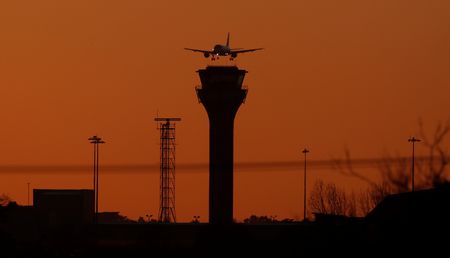LONDON (Reuters) – Britain approved the expansion of London’s Luton Airport on Thursday, giving the green light to the building of a new terminal which will allow passenger numbers at the capital’s fourth busiest hub to jump by almost 80%.
Britain’s Labour government, elected last July, has put speeding up the planning process to deliver new energy and transport projects at the heart of its growth agenda, and has already backed expansion at London’s bigger Heathrow and Gatwick airports.
Luton, located 35 miles north of London, plans to add a terminal building, expand existing buildings and build new taxi-ways, as it looks to grow annual passenger numbers to 32 million by 2043, from about 18 million now.
Transport Secretary Heidi Alexander considers that there is a “compelling case” for approving the project, a planning decision document published by the government said.
Luton is mainly a leisure airport taking holidaymakers to European destinations, and is used by airlines including easyJet, Wizz Air and Jet2.
The airport welcomed Alexander’s decision and said it would create up to 11,000 jobs and an additional 1.5 billion pounds in output for the British economy each year.
Planning officials had recommended that Alexander block the development on environmental grounds but she overruled those concerns.
“Given the national need for the proposed development and the capacity it will deliver … the Secretary of State does not believe that this is outweighed by the development’s potential adverse impacts,” the decision document said.
The government has previously said that airport expansions will not derail net zero targets because the use of sustainable aviation fuel is expected to grow further in the coming decade from currently low levels.
Luton is owned by the local government council and run by London Luton Airport Operations Ltd, which is 51% held by Spain’s Aena alongside Australian investor AMP.
(Reporting by Sarah Young and William James, editing by Sachin Ravikumar)











